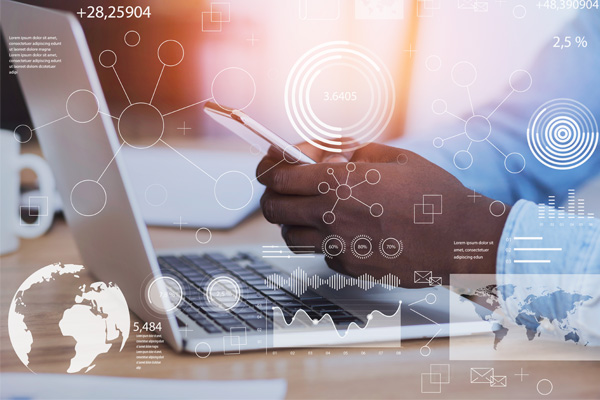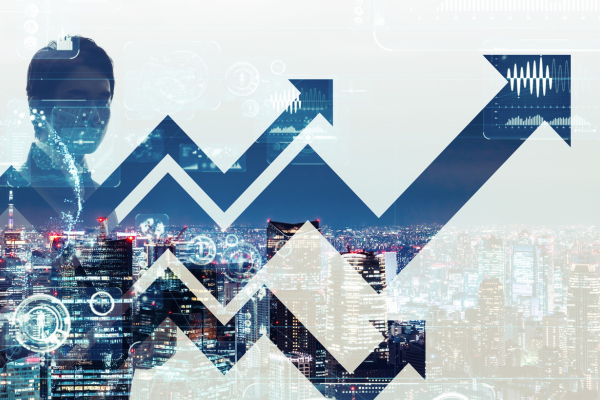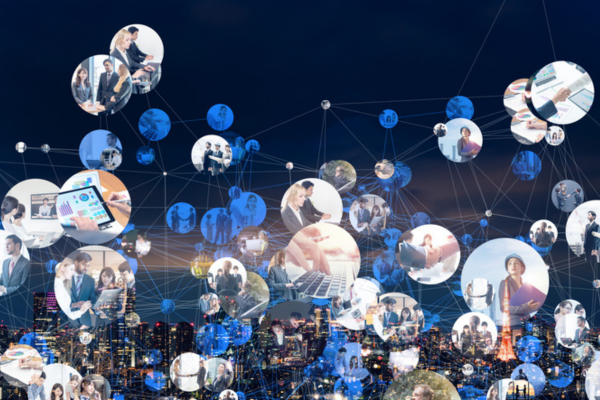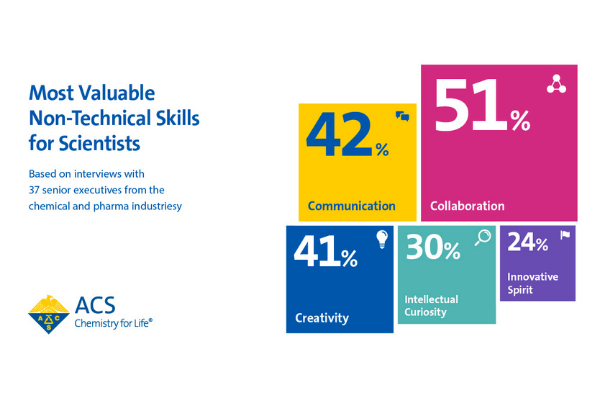
Key Takeaways:
- What the world will look like in 2035, and what Marcus Remmers and DSM plan to do about it
- How the rise of the digital transformation of data may impact the work of scientists at DSM
- Marcus reminisces about his time spent in Georgia and shares what Americans and Europeans can learn from each other in research and development
Sustainability is a keen interest of DSM, and you personally. How do you ingrain the concept of sustainability – as a forethought – across the company business groups?
DSM is a purpose-led company. All our products and solutions should contribute to people and the planet, not just profit. In fact, the United Nations Sustainable Development Goals (UN SDGs) are our compass. Through our so-called Brighter Living Solutions, we address the world’s megatrends.
In particular, we work according to the principle, “Improve, Enable, Advocate”. We improve our own sustainability footprint and have set ourselves science-based targets to measure our progress, we enable our clients to improve theirs by offering science-based solutions, and we advocate for a better world through platforms such as the Davos Forum or the United Nations General Assembly. Above all, doing what’s right for people and the planet keeps us focused on sustainability.
On a personal level, being a father of two teenage daughters increases my drive to act for the next generation’s future. We inherit the planet from our parents and pass it on to our children; we do not own anything. While it’s easy to say it and not act upon it, we have both the power and responsibility to build a better world.
It’s 2035. What is providing humanity with its greatest challenge? Access to food? Water? Energy? Clean air? Healthcare? Shelter? Something else? And what is DSM’s role in mitigating this eventuality?
The world already faces big challenges today: Over 140 million could be forced to migrate due to climate change and 850 million people are suffering from hunger, over 650 million are obese. By 2030, more than two-thirds of the world’s population will live in megacities, bringing additional challenges like access to food, waste disposal, energy, and clean air.
DSM is well-positioned to contribute to solutions to these challenges, especially in nutrition & health, climate & energy, and resources & circularity. For example, we’re proud that our Africa Improved Foods joint venture has now been running for over two years in Rwanda, helping to combat starvation and nutritional deficiencies.
Above all, we need to be anticipating the future’s challenges now. Take Bovaer®, our latest innovation to reduce methane emissions from cattle. This feed additive suppresses the enzyme that triggers methane production in a cow’s rumen, reducing enteric methane emissions by approximately 30%. We foresaw this issue long ago, but the product took 10 years to be ready for commercialization – developing solutions in advance is crucial.
What technology trends are you following most closely with an eye toward how they may impact the work of your scientists?
Digital transformation has the potential to impact profoundly the way we work and do business. Today, the amount of data in the world doubles every few months. We need smart tools to help keep up with this increase. Digitalization is also enabling us to move from physical modeling and lab testing to in silico modeling.
Within biotechnology, big data and new tools such as CRISPR genome editing are opening up whole new possibilities, for instance in the fields of sustainable materials and agriculture.
Another field we are just starting to understand is the highly complex microbiome, opening opportunities to better understand the immune system of people and animals and develop smart solutions for the immune system accordingly. Our Scientific Advisory Board, which acts as our external view into the world, helps us monitor these trends.
Among your scientists at DSM, what non-technical skills do you most highly value?
I appreciate scientists who show an entrepreneurial spirit: speaking up, taking calculated risks and initiative, and having a sense of urgency. That’s why I’m pleased that at DSM we develop these skills through specific programs.
Also, self-reflection is very important: we want people to take time to reflect on what has worked well for them and others, how they can do better, and what they can learn. Trying new things is part of this – I like the Pippi Longstocking quote “I have never done it, so I will probably be good at it.”
Finally, I value storytelling. Trust in institutions and government is at an all-time low: we can’t assume any longer that people will automatically accept scientific evidence. We need to learn to discuss our solutions in a way that nonscientists can understand and appreciate. To address this need, we offer storytelling workshops for our R&D community.
What are some of the ways you try to develop and retain young talent at DSM?
When it comes to developing young talent, we apply the 70-20-10 rule. We believe that 70% of learning should come from experience, 20% from interacting with others (such as seeking feedback, observing others or mentoring) and the final 10% through formal study.
One way we stimulate learning on the job is by facilitating job exchanges and secondments. Another way is our online X-Time platform, where people can post projects for which they seek support or volunteer for a project that fits their development goals.
As CTO, I have also installed a Sounding Board of talented, young R&D colleagues from a range of fields across the globe. They provide me with critical feedback and fresh new ideas. To attract and retain young talent, we also have a continuous focus on inclusion & diversity in R&D. For instance, in 2019 we have campaigned actively to advocate for the need for more Women & Girls in Science & Technology.
What are the essential attributes of effective, productive teams?
I feel strongly that the first step towards productive teams is engaging your people: Create an environment where everyone is supported and challenged. Once you have an engaged workforce start thinking about effectiveness – this means solving the right problems.
After that make sure you increase your efficiency (doing things faster, cheaper and better). I find it a common pitfall that people focus on efficiency first: In the worst case you end up solving all the wrong problems faster … losing the spirit of your employees along the way.
How did your parents influence your leadership style?
I grew up in a family with strong values. My parents were always there to support me, but expected me to take my own responsibility early. My father was an engineer and university teacher, while my mother was more into languages, so I learned both technical knowledge and creativity from them. This taught me the value and importance of complementary skills.
My parents also encouraged me to aim high, something I really appreciate right now. Because of them, I still try to become a better version of myself, in how I behave and in what I do. These learnings shaped me and by taking their values of ambition, integrity, and respect into my leadership at DSM I try to make a difference. For those working with me and for the company overall … and at same time, I try to not take myself too seriously.
Individual companies, such as DSM, are working diligently to ‘create brighter lives for all.’ That said, how would you assess the performance of global companies – working together – to mitigate major science-based problems confronting the world? What would make them collectively more effective?
For some time already, DSM has identified working in partnerships as one of the key drivers for being successful in Doing Something Meaningful. To meet the world’s challenges, there is no single company that can do it all alone – global companies need to work together. At DSM we are actively part of this, with both local and global partnerships. Luckily, we feel more companies are embracing this.
Working in partnerships is very inspiring, however, it is not always a ‘’walk in the park’’ – you will face challenges along the way. Running a program in a partnership is not the same as running a program solely in-house; the impact of initial cultural differences and ways of working are often underestimated.
We have noticed, that to be effective at working together, it’s important to build trust right from the start. You will need to have the difficult conversations at the beginning of your collaboration. Also, starting with like-minded partners, who feel equally strongly about sustainability, is essential. Of course, the work we do needs to be profitable. But, at the same time, our partnerships should be based on the joint belief in a brighter world – People, Planet and Profit.
What’s the biggest internal challenge you confront in your job? What about external?
It can be difficult to decide “where to lay my eggs” – there are so many opportunities. For example, finding the right balance between short-term and long-term decisions is a significant challenge. And, as well as the wealth of opportunities, the world also now faces information overload. Knowledge is growing exponentially – you cannot read everything anymore – so keeping up with what is most relevant is a big challenge these days.
To tackle these challenges, it’s important to constantly look at what we should be doing, as there is so much that we could be doing. And when considering partnerships, it’s also important to be clear about what you can and cannot do yourself and to find the right partners to fill those gaps.
You have worked and studied both in Europe and the U.S. What can the Europeans learn from the U.S. about research and development? And what can the Americans learn from the Europeans in this area?
In my experience, European companies tend to be more open to long-term thinking and a broader responsibility of companies beyond the profit interests of the shareholders. This is beneficial when dealing with long-term issues like sustainability. What sets innovation in the U.S. apart for me is the large and vibrant world of start-up companies: the enthusiasm, can-do mentality, entrepreneurship, agility, ability to learn from failure, and quick decision-making add great value.
Above all, I value being able to experience both approaches. I have an international background – my wife is from Mexico, my kids were born in the U.S., I have both U.S. and German citizenship, and I’ve also lived and worked in the UK and other countries. Living in different cultures and experiencing different perspectives is challenging and enriching – that’s why I’m so passionate about inclusion and diversity.
In terms of miles, it’s a long way from Germany, where you were raised, to Duluth, Georgia, where you spent many years working for Merial. Culturally, the gap is even greater. Is there anything you miss about Georgia – grits, NASCAR, peaches, something else?
As a family we miss the sunny days in Atlanta, the games of the Atlanta United soccer team – and our favorite frozen yoghurt place (given all the yoghurt we ate there, they probably miss us, too!). In general, we felt more of a sense of community in Atlanta – expressed in things like Thanksgiving with friends and family, or neighbors coming together for Halloween, and people bringing things to share. That’s what I miss the most.
When you leave DSM, what legacy would you like to leave behind?
Everything I do is already building on a great legacy of work from the past – over 100 years of it. But, if I had to say something about leaving a legacy, I would like to be associated with three things: pushing DSM R&D into the digital age, linking R&D to marketing, and increasing our collaborations – internally and with the external world. We need to deliver smart commercial solutions for a brighter world, with our customers at the forefront.
Congratulations. Because you participated in Boss Talk, and because you’re a German national, ACS is going to purchase a German-made vehicle for you (not really!). You have your choice of any model from the following: BMW, Audi, Volkswagen, Porsche, or Mercedes Benz. Which one would you like, and why?
Well, as a German national I do love German cars, of course. I have driven a Porsche, a Mercedes Benz, and a BMW in the past, and especially liked the Porsche.
However… I recently exchanged it for an all electric Nissan Leaf. At home, my kids call it the Harry Potter car. Why? Because it just moves “magically” – you don’t feel or hear anything. I actually fell in love with electric driving when I started at DSM, and I will never drive another kind of car again!
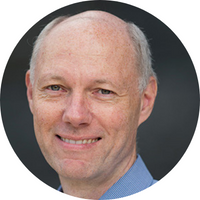
Marcus Remmers, a German national, is Chief Technology Officer at DSM, based in Geleen (the Netherlands). As CTO, Marcus is responsible for DSM’s global Science and Technology portfolio. He graduated in Chemistry at the Universities of Münster and Freiburg and finalized his Doctorate Thesis at the Max-Planck-Institute for Polymer Chemistry in Mainz and did research at Stanford, Caltech and Cambridge.
Marcus has strong knowledge and experience in polymer and life sciences R&D, business operations, business development, strategy and change management. He is recognized as an effective transformational leader and team builder with a broad international background. He started his career with Hoechst/Intervet in several managerial roles. In 2001, Marcus joined Merial Ltd., where he had roles in Business Development, Country Management, Project and Portfolio Management and R&D in Pharma and Biologics.
n April 2017, Marcus Remmers became Chief Technology Officer of DSM, where he works to secure the company’s technology position. This includes making sure that DSM has the right scientific competencies and enabling the right collaborations with external partners. Before joining DSM, Marcus held a series of positions at Merial, the animal health division of Sanofi.
This article has been edited for length and clarity. The opinions expressed in this article are the author's own and do not necessarily reflect the view of their employer or the American Chemical Society.
Copyright 2019 American Chemical Society (All Rights Reserved)



